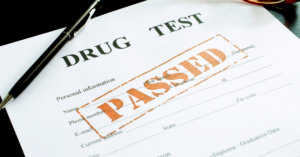

Not every addiction is to a substance. While some people may find the relief they are after at the bottom of a bottle, others could be drawn to alternative behaviors. At Diamond Recovery, we understand the intricate challenges individuals face when grappling with a process addiction, and we’re dedicated to providing comprehensive treatment tailored to each person’s unique needs.
Our approach to process addiction treatment encompasses a blend of therapeutic interventions, support networks, and holistic strategies aimed at fostering lasting recovery. From addressing the behavioral patterns underlying addictive behaviors to promoting emotional healing and rebuilding relationships, our programs are designed to empower individuals to regain control of their lives and embark on a journey toward a healthier, more fulfilling future.
Process addiction, also referred to as behavioral addiction, is the compulsive engagement with a certain activity or behavior despite unfavorable outcomes. In contrast to substance addictions, which involve the use of drugs or alcohol, process addictions are focused on recurrent actions or activities that provide a temporary sensation of relief or pleasure. These habits have the potential to consume so much time and money that they become obstacles to relationships, everyday living, and general well-being. Process addictions are frequently misdiagnosed or disregarded, yet if untreated, they can have dangerous repercussions.
Examples of process addictions include:
It’s critical to understand that process addictions can be just as crippling as drug addictions and that recovery may necessitate assistance and professional involvement. Seeking help from therapists, support groups, or addiction treatment programs can help you address underlying issues and create better coping methods. People who are battling process addictions can take back control of their lives and find a way to rehabilitate with the correct resources and techniques.
A multimodal approach is necessary to treat process addictions, as they incorporate behavioral patterns and underlying psychological elements that contribute to the disorder. Therapy is an important part of treatment because it can help people understand their addictive patterns, identify triggers, and build coping mechanisms to regulate urges and impulses.
Cognitive-behavioral therapy (CBT) is widely used to confront faulty thought processes and change undesirable behaviors related to process addictions. Therapists can also help patients become more conscious of their thoughts and feelings by using methods like mindfulness-based therapies, which promote better emotional regulation and self-control. If you are interested in accessing this or other forms of therapy, contact our mental health facilities in Florida today.
In addition to therapy, support groups can be quite beneficial in the treatment of process addictions. By joining organizations like Debtors Anonymous, Gamblers Anonymous, or Sex Addicts Anonymous, people can connect with peers who are sympathetic to their situation and can provide advice and support. Peer support offers helpful advice for controlling cravings and maintaining motivation in recovery, as well as assisting people in feeling less alone and ashamed of their addiction.
On top of this, the inclusion of family members or other close relatives in the therapeutic process can help the patient’s support system and promote better communication and relationship dynamics. These aspects are frequently strained due to the consequences of process addictions.
As one of the top rehab facilities in Florida, our commitment to excellence extends beyond addressing process addictions to encompass a range of traditional addiction treatment programs and levels of care. Whether through residential rehabilitation, intensive outpatient programs, or aftercare support, we provide a continuum of care that meets individuals wherever they are on their journey to recovery. With a focus on empowerment, healing, and holistic wellness, we strive to equip our clients with the tools and support they need to overcome addiction and embrace a life of sobriety and fulfillment.

Creating foundations of solution for those suffering from substance use disorders.
Licensed by the State Department of Health Care Services
License: 191117AP
Expires: 01/31/2026
© Diamond Recovery 2024
About Us
Quick Links